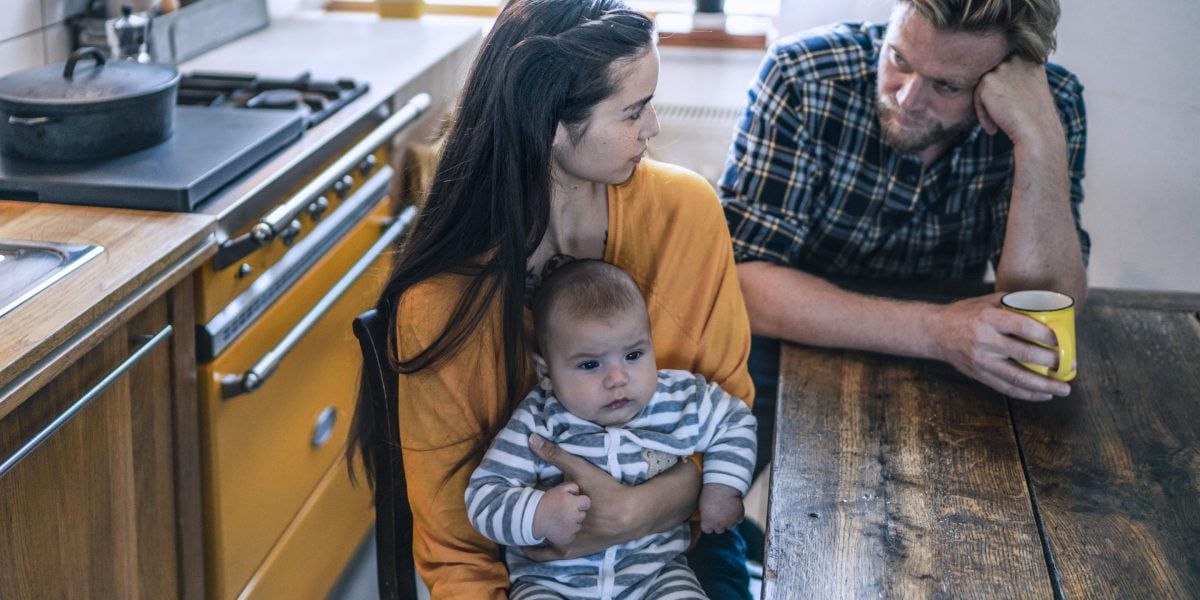Few milestones in life mean as much to the American Dream as owning a home. And millennials have encountered the kind of trouble totally befitting their generation, which largely graduated into the teeth of the disastrous post-2008 job market. Just as they entered peak homebuying and household formation age, housing affordability is at 40-year lows, and mortgage rates are near 40-year highs.
The anxiety this generation feels about the prospect of never owning their own home affects their entire perception of their finances and the economy, says Moody’s chief economist Mark Zandi.
“If they feel like they’re locked out of owning a home it colors their perceptions about everything else going on in their financial lives,” Zandi says.
Millennials have long been dogged by a brutal housing market. They faced not one, but two, cataclysmic economic events—the Great Financial Crisis in 2008 and the pandemic in 2020. Both of which left them reeling financially and struggling to afford a home. The Great Recession decimated the real estate market as the economy nearly collapsed under the weight of tenuous mortgage backed securities. While the pandemic brought with it a remote work boom that caused millions of citydwellers to flee to the suburbs, sending housing prices soaring.



The median home should not be a McMansion, this is part of the problem. Look at median household income and you will see why.
No, it truly is, because that’s how numbers work.
Median income should not be buying Median homes because that ignores the entire existence of renters markets.
You have to factor in the enter renter market plus the buyer market combined.
And if you do that then the Median price of a home suddenly plummets, as now your average home is a very nice well off apartment.
People hate on the concept of renting, but the real issue is unregulated renting.
Renting serves a critical economic role for people so it needs to exist.
But collusion and bad actors have poisoned the renting markets in many cities unhindered and that does need tackling.
Renting may serve a purpose but a permanent underclass of people stuck renting forever does not. And a big reason this exists is the increasingly wide gap between median home price and median income.
The number of people who would choose to rent in a more just society is way smaller than those who are forced into it today.
Sure.
Doesnt change reality though, homes are affordable, you just don’t get to live in a mansion on a median income which isn’t a hot take.
No one is saying everyone should be able to afford to live in a mansion. But I’m saying the median home should not be a mansion, it should be a normal-sized house that ordinary people can afford.
The fact that most homes being built today cater to the wealthy and not average people is a symptom of the same extreme wealth inequality I was discussing above.
If you factor in renting prices in the range, the median household price drops way down and is around that mark, potentially lower.
The median house price alone when you chop off the entire rental market from the graph will never be that, because you effectively bias the number heavily upward by chopping off the entire lower portion of the data, biasing it upwards.
Rentals+Owning will have a median cost of living that aligns with the median income of the area.
But on average renting is cheaper than owning, so when you chop off and ignore that entire (very large) portion of the market, it’s no surprise your median jumps up.
It’s literally slightly less than half the entire market one ignores. Don’t get fooled by it.
Yeah, and then people would say “why do people buy those useless apartments of 190 ft²?”
Because that’s the only affordable housing